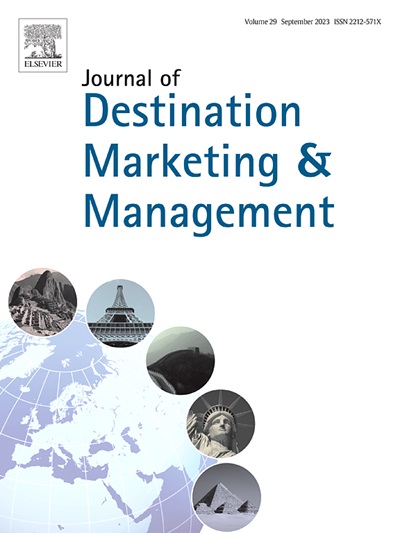Hierarchical policy evolution and impact on industry advancement in marine tourism: A comprehensive study of China
IF 7.4
2区 管理学
Q1 HOSPITALITY, LEISURE, SPORT & TOURISM
引用次数: 0
Abstract
Identifying the target positioning and promoting coherent signal transmission in the hierarchical policy system are critical driving forces to maximize policy effectiveness and foster sustainability in marine tourism. With the continuous highlighting of the key role in marine tourism industry and the improvement of relevant policies, this research explores the evolution and effectiveness of marine tourism policies in China from 2012 to 2021. Utilizing a mixed-methods approach, it combines signaling theory and strategic choice theory to expound the dynamic impact of policy signal transmission. The main findings are the three administrative levels have established related yet distinct policy topic priorities and preferences in the use of policy tools during policy formulation and there is a strong emphasis on economic environment-oriented policy tools and identifies both one-way and two-way causal relationships between policy power and company performance. Thus, this study provides a basis for international policy adaptation and calls for future research to broaden the cultural applicability of the framework and deepen policy document analysis.
海洋旅游业的分层政策演变及其对产业发展的影响:中国综合研究
找准目标定位,促进分层政策体系中信号传递的一致性,是实现海洋旅游政策效力最大化和促进海洋旅游可持续发展的关键动力。随着海洋旅游业关键作用的不断凸显和相关政策的不断完善,本研究探讨了 2012 至 2021 年中国海洋旅游业政策的演变及有效性。研究采用混合方法,结合信号理论和战略选择理论,阐述了政策信号传递的动态影响。研究的主要发现是,在政策制定过程中,三个行政级别确立了相关但又不同的政策主题优先顺序和政策工具使用偏好,并且非常重视以经济环境为导向的政策工具,并确定了政策力与企业绩效之间的单向和双向因果关系。因此,本研究为国际政策调整提供了依据,并呼吁未来研究扩大该框架的文化适用性,深化政策文件分析。
本文章由计算机程序翻译,如有差异,请以英文原文为准。
求助全文
约1分钟内获得全文
求助全文
来源期刊
CiteScore
18.60
自引率
3.60%
发文量
46
审稿时长
43 days
期刊介绍:
The Journal of Destination Marketing & Management (JDMM) is an international journal that focuses on the study of tourist destinations, specifically their marketing and management. It aims to provide a critical understanding of all aspects of destination marketing and management, considering their unique contexts in terms of policy, planning, economics, geography, and history. The journal seeks to develop a strong theoretical foundation in this field by incorporating knowledge from various disciplinary approaches. Additionally, JDMM aims to promote critical thinking and innovation in destination marketing and management, expand the boundaries of knowledge, and serve as a platform for international idea exchange.

 求助内容:
求助内容: 应助结果提醒方式:
应助结果提醒方式:


